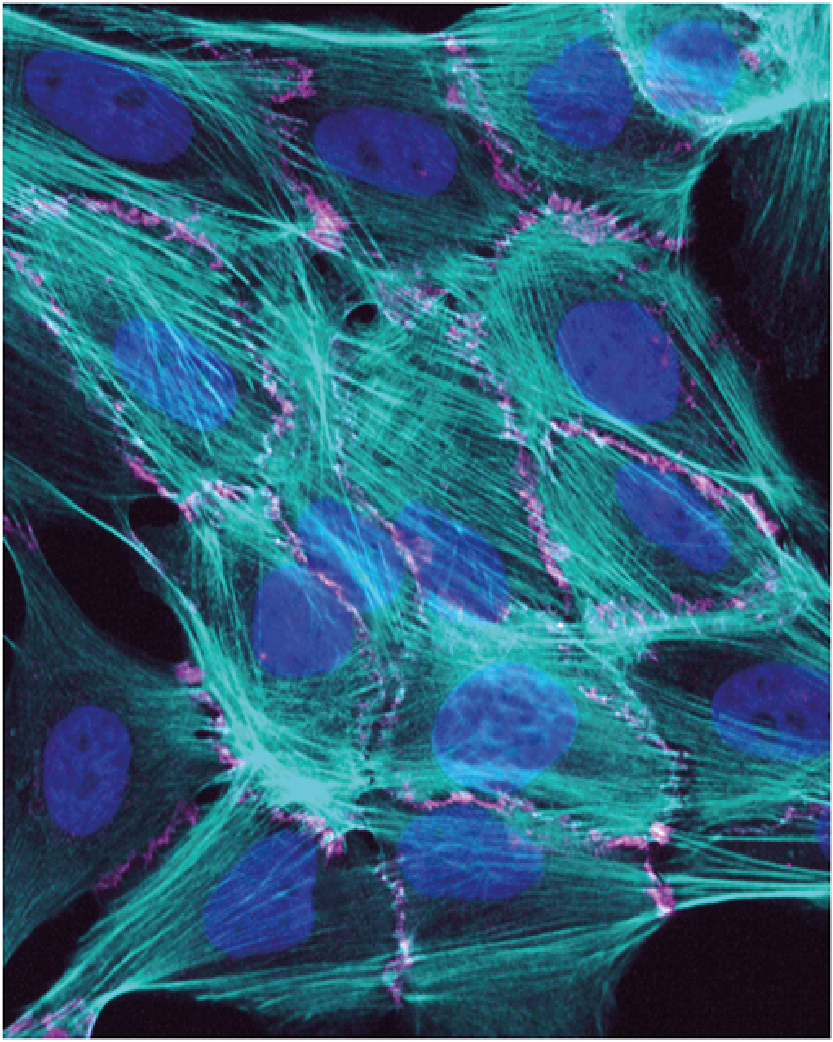
The dynamics of many cellular processes are controlled by protein tyrosine phosphorylation, requiring the actions of both kinases and phosphatases. In cancer, this balance is often dysregulated, for example, when tyrosine kinases are over-activated. This has led to successful therapeutic interventions, such as EGFR inhibitors. The role of receptor tyrosine phosphatases in cancer is less clear. Moreover, little is known about how these receptors sense and transmit signals between cells in healthy tissues. The homophilic receptor PTPRK has been highlighted as a gastrointestinal tumour suppressor by genetic screens and is part of an oncogenic fusion in some colorectal cancers.
In their new publication in eLife, researchers in the laboratory of Dr Hayley Sharpe at the Cambridge Institute for Medical Research systematically identify direct substrates of PTPRK providing new insights into signalling downstream of cell contact. PTPRK dephosphorylates known regulators of cell-cell adhesion, and loss of PTPRK impairs cellular junctions and increases invasiveness. These findings are important because compromised epithelial integrity and increased invasiveness are hallmarks of cancer and thus shed light on a potential tumour suppression mechanism for PTPRK.















